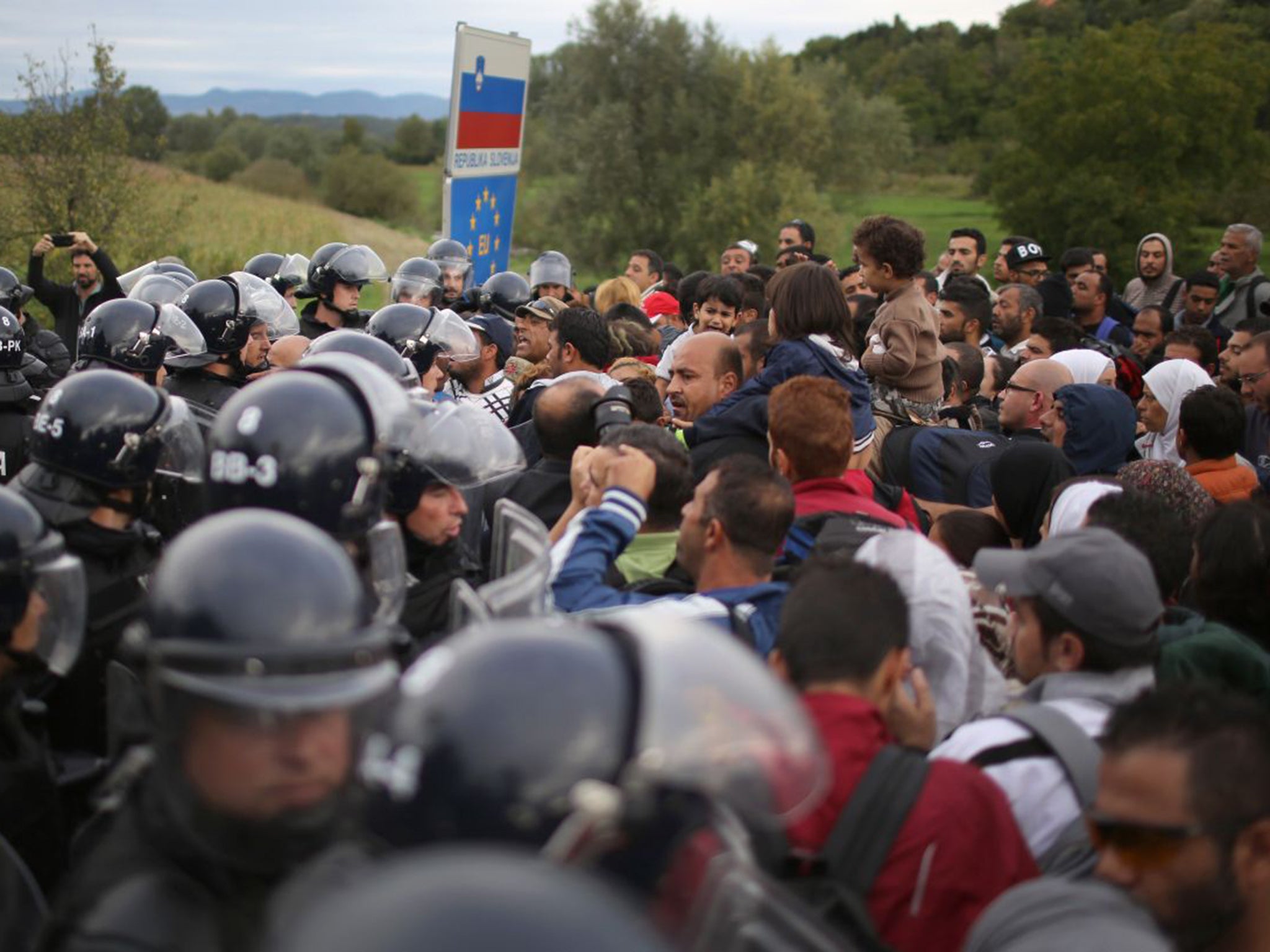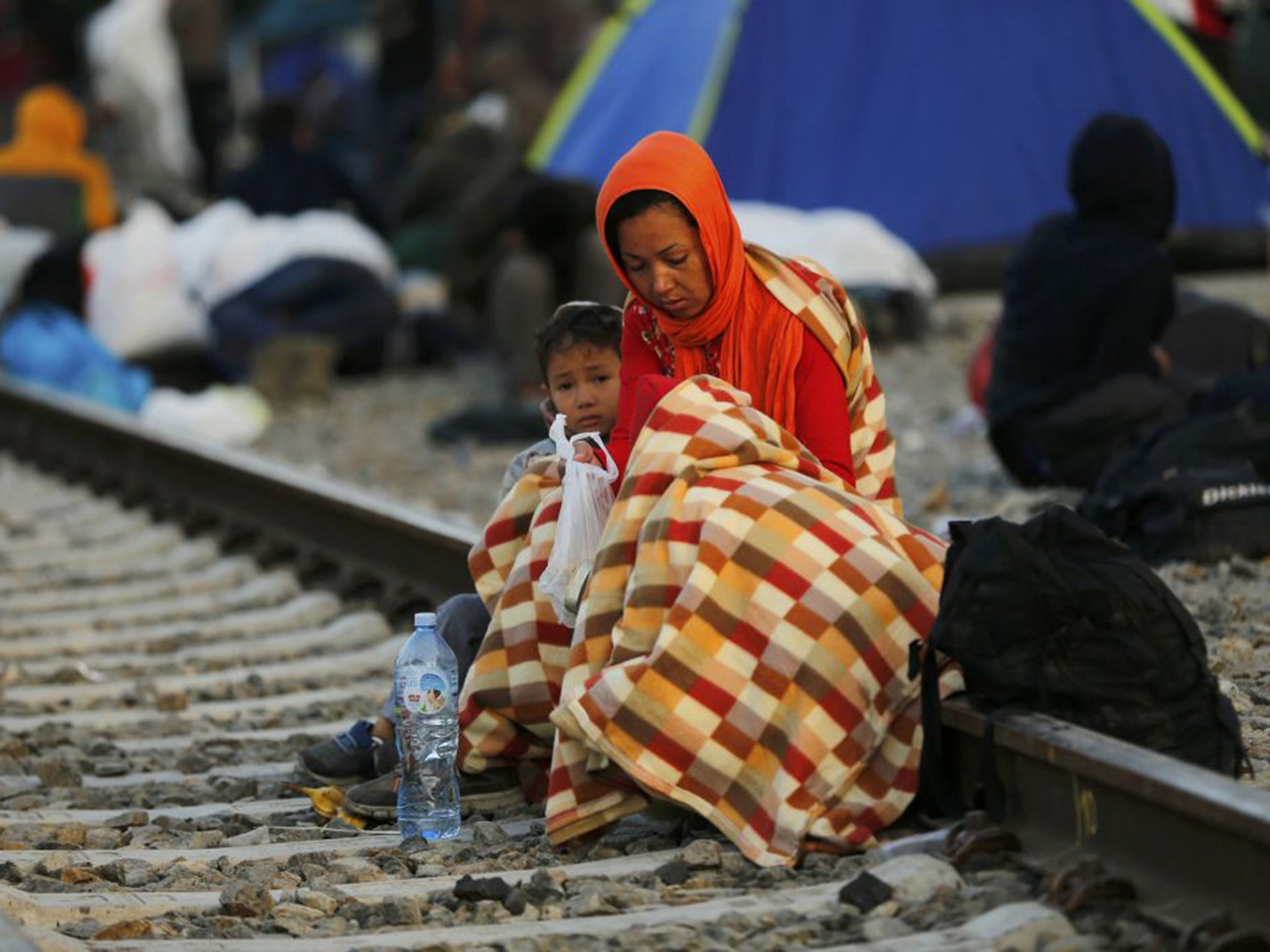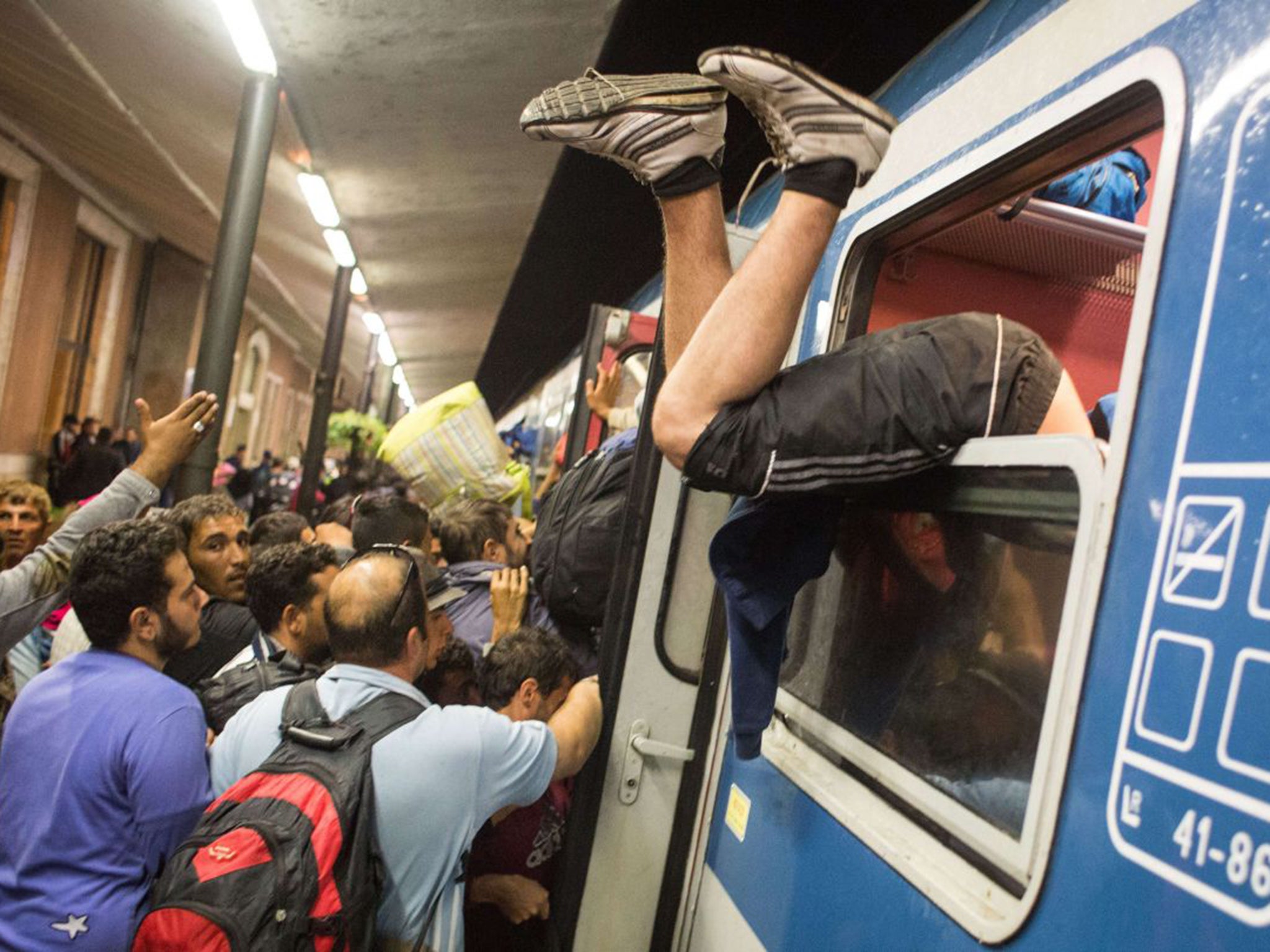Refugee Crisis: At the border of Austria and Slovenia there's a rare happy ending
'This is the calm now, and I hope we don’t have the storm'

Your support helps us to tell the story
From reproductive rights to climate change to Big Tech, The Independent is on the ground when the story is developing. Whether it's investigating the financials of Elon Musk's pro-Trump PAC or producing our latest documentary, 'The A Word', which shines a light on the American women fighting for reproductive rights, we know how important it is to parse out the facts from the messaging.
At such a critical moment in US history, we need reporters on the ground. Your donation allows us to keep sending journalists to speak to both sides of the story.
The Independent is trusted by Americans across the entire political spectrum. And unlike many other quality news outlets, we choose not to lock Americans out of our reporting and analysis with paywalls. We believe quality journalism should be available to everyone, paid for by those who can afford it.
Your support makes all the difference.At the frontier of another sealed border of the European Union, all was quiet, save for some crickets chirping, riot police wearily scraping their shields on the asphalt, and the light snoring of refugees sleeping on the bridge.
In the hours before at Croatia’s northern border with Slovenia, frustration at yet another obstacle to refugees sparked a demonstration which turned ugly after some plastic bottles were thrown at police, who responded by firing pepper spray into the crowd.
Ayam Radhi, 33, a macrobiologist from Baghdad, Iraq, rubbed his hands together as a new chill descended. He is one of an estimated 20,700 asylum-seekers to have entered Croatia since Wednesday; most hoping to move on to wealthier EU nations, such as Germany or Sweden.
His friends had found a smuggler in Belgrade, Serbia, who offered to take them to Austria – probably via Croatia and Slovenia – for €1,500 (£1,100) each. When the group were dropped off in the middle of a forest they had no phone battery to consult a GPS and wandered through the woods for three days until meeting a policeman who showed them his Croatian patches, told them they were not in Austria, and directed them to a train station where they travelled to Harnica. Mr Radhi wondered how he and his friends were seen by Europeans.

“People think we are militant Islamists? We are fleeing that. Why don’t you send in your armies now, you would be welcomed. In Baghdad there are gangs, and their bosses are the government, you can be kidnapped any time and sometimes they don’t return you alive.”
Mr Radhi was accepted on to a masters course in Germany earlier this year but no embassy in the region gave him a visa. “When I arrived in Croatia it was so quiet, so peaceful. That’s what I want. Just a real life,” he said.
His friend Abdul, 27, wears a long beige trench coat, shorts, black loafers and white socks he obtained at a refugee camp. He is terrified at the prospect of being processed in Slovenia and maybe returned to Iraq under the Dublin treaty. He said: “If they are registering people there, I will slice off my fingertips with a razor blade.”
A long power cable, provided by villagers, snakes out of a little chapel on the side of the road, where Feres Badawi, 19, charges his phone. Mr Badawi has been on the road for a month, after leaving Damascus with his 13-year-old brother.
In Syria, he was a judo champion, and he swipes through photos of his memories. Competitions in China, a mall in Dubai. “If there was no war then of course I would stay. I would be an engineer in Syria, and become a national champion, maybe regional. I like drawing; architectural diagrams and people’s faces. But I lost my notebook crossing the sea …”
Getting to Germany and Austria has become much more difficult in recent days. Hungary has built a fence along its border with Serbia, and part of a fence along its border with Croatia, although most of that border runs roughly along the Drava river, which is difficult to cross. Slovenia has said it will not take in thousands of refugees – despite more than 1,500 making it across its borders. Even Germany and Austria, once willing to take in as many as they could after Hungary made its intentions clear, have imposed border controls.
Hungary and Croatia traded threats over the fate of the thousands of exhausted people crossing whatever borders they can.Hungary, where the right-wing government of Viktor Orban has vowed to defend “Christian Europe” against the mainly Muslim refugees, accused Croatia of “violating Hungary’s sovereignty” by sending buses and trains packed with people over the border – between Friday and Saturday. It warned it might try to block Croatia’s accession to Europe’s Schengen zone of passport-free travel.
“Croatia’s government has continuously lied in the face of Hungarians, Croatians, of the EU and its citizens,” Hungary’s Foreign Minister Peter Szijjarto said. “What kind of European solidarity is this?”
Croatia’s Prime Minister Zoran Milanovic said that, unlike Hungary, he would not use “brute force” to keep people out, nor would his government make them stay against their will. The buses and trains would keep running to Hungary, he said. “We forced them [to accept the migrants], by sending people up there. And we’ll keep doing it,” he said.
EU leaders, deeply divided, are due to meet on Wednesday in a fresh attempt to agree on how and where to distribute 160,000 refugees among their countries.
In Macedonia, the interior minister said that “a consistent European approach is needed” to solve the continent’s problem. Mitko Cavkov accompanied EU commissioner Johannes Hahn as he toured a migrant camp in Gevgelija, on the southern border with Greece, where about 5,000 people a day are passing through on their way to Serbia and beyond. Mr Cavkov said “we are worried, because of the closure of the borders, for migrants in the north.”

Around 4,700 people were rescued off the coast of Libya as they tried to reach Europe but one woman was found dead, Italy’s coastguard said – as they co-ordinated more than 20 rescue operations. The Greek coastguard said a five-year-old girl was dead and another 13 people feared overboard after their boat sank off the island of Lesvos.
Near the Slovenian border with Austria, a group of 30 refugees sat in the town of Sentilj. Student Saeid Yari, 22, played a video of him jumping into a lake in the mountains in Tehran. Suddenly beckoned by a police officer, the group stood up, formed a line and traipsed through the almost deserted border crossing, and within minutes were in the Austrian town of Spielfeld. An impromptu round of applause rippled through the refugees, and an elderly Austrian couple waved and shouted salutations. Mr Yari looked around and managed to utter just one word. “Peace.”
Under greying skies, refugees lined up to register at some wooden tables. The transit centre is barely a day old. Beyond them, lines of white tents lay empty. Klaus Steinwendter, 36, from the Austrian Red Cross, said: “I came here at midday and after minutes a young mother arrived with a baby. They both have some complications. I guess she must have given birth on the street.” Mr Steinwendter studied the slow trickle of refugees. “This is the calm now, and I hope we don’t have the storm.”
Join our commenting forum
Join thought-provoking conversations, follow other Independent readers and see their replies
Comments